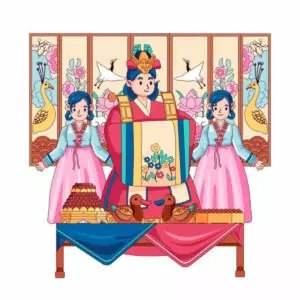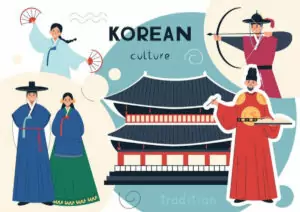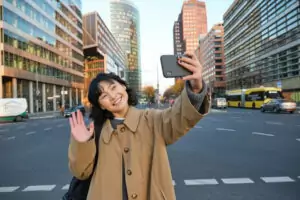Learning how to say “guys” in Korean is essential if you want to communicate naturally with your Korean-speaking friends or acquaintances. Addressing people appropriately is a crucial aspect of language and culture, and mastering this skill will not only help you fit in but also show respect to the locals. In this comprehensive guide, we will explore various ways to say “guys” in Korean, including casual expressions, pronunciation tips, and examples for practical use.

✅ AI Essay Writer ✅ AI Detector ✅ Plagchecker ✅ Paraphraser
✅ Summarizer ✅ Citation Generator
Understanding Casual Expressions
In informal settings among friends of similar age or close acquaintances, “친구들” (chingu-deul) is widely used to refer to “guys” in Korean. This term carries a sense of camaraderie and familiarity.
Politeness Matters: Formal Address
In more formal situations or when addressing elders or superiors, it is essential to show respect by using “친구분들” (chingu-bundeul). The addition of “분” (bun) indicates politeness and is a sign of courtesy.
Mastering Pronunciation
To say “친구들” correctly, remember to pronounce “친구” as “chin-goo” and “들” as “dool.” When speaking, emphasize the “g” sound slightly for better pronunciation.
Examples of Using “Guys” in Korean Sentences
- Informal: “오늘 저녁에 친구들과 만나기로 했어요.” (Oneul jeonyeok-e chingu-deulgwa mannagi-ro haesseoyo.) – “I decided to meet up with my friends for dinner tonight.”
- Formal: “친구분들을 소개시켜 주세요.” (Chingu-bundeul-eul sogae-sikyeo juseyo.) – “Please introduce your friends.”
Alternatives for Addressing a Group
Apart from “친구들” and “친구분들,” there are other alternatives for addressing a group of people in Korean:
- “여러분” (yeoreobun) – Everyone or ladies and gentlemen
- “모두” (modu) – Everyone or all
- “이들” (ideul) – They or these people
Regional Variations in Expressing “Guys” in Korean
Korean is a diverse language, and regional variations in expressions do exist. In some areas, you might hear “친구들” (chingu-deul) or “친구분들” (chingu-bundeul) as standard ways to address “guys.” However, some regions may have their unique terms or dialects for referring to a group of people. When interacting with locals from different regions, paying attention to these variations can help you adapt better to the local culture and language.
Conclusion
Knowing how to say “guys” in Korean is a valuable skill that allows you to communicate naturally and respectfully with your Korean-speaking friends and acquaintances. Remember to consider the context and formality when addressing a group, and be mindful of regional variations or slang expressions. Practice the pronunciation and use the examples provided in this guide to enhance your language skills and cultural understanding when conversing in Korean. Happy learning!
FAQ
What is the Korean word for “guys”?
The Korean word for “guys” is “친구들” (chingu-deul). It is commonly used to refer to a group of friends or people you are familiar with. However, keep in mind that addressing people in Korean involves considerations of formality and politeness, so using “친구들” may not always be suitable for all situations.
How do you pronounce “guys” in Korean?
The pronunciation of “친구들” is relatively straightforward:
- “친구” (chingu) – Pronounced as “chin-goo”
- “들” (deul) – Pronounced as “dool”
To pronounce the full word “친구들,” say “chin-goo-deul” with a slight emphasis on the “g” sound.
Are there different ways to address “guys” based on age or formality in Korean?
Yes, addressing “guys” in Korean can vary based on age and formality. For friends who are similar in age or of equal status, you can use the informal term “친구들” (chingu-deul) mentioned earlier. However, if you are addressing older individuals or in a more formal setting, it is respectful to use “친구분들” (chingu-bundeul). The addition of “분” (bun) signifies politeness and respect.
Can you provide examples of using “guys” in Korean sentences?
Certainly! Here are some examples of using “친구들” (chingu-deul) and “친구분들” (chingu-bundeul) in sentences:
- Informal: “안녕, 친구들! 같이 영화 볼까?” (Annyeong, chingu-deul! Gachi yeonghwa bolkka?) – “Hello, guys! Shall we watch a movie together?”
- Formal: “친구분들 모두 모여 주세요.” (Chingu-bundeul modu moyeo juseyo.) – “Please gather, everyone.”
Is “guys” a common term in Korean culture, or are there other alternatives?
While “친구들” (chingu-deul) is commonly used among friends in casual settings, there are other alternatives to address a group of people in Korean. Some alternatives include:
- “여러분” (yeoreobun) – Equivalent to “everyone” or “ladies and gentlemen”
- “모두” (modu) – Meaning “everyone” or “all”
- “이들” (ideul) – General term for “they” or “these people”
The choice of term depends on the context and the level of formality you wish to convey.
Are there any slang or colloquial expressions for “guys” in Korean?
Yes, in informal settings, you might come across some slang or colloquial expressions used to refer to “guys.” One such term is “놈들” (nomdeul), which can be translated as “guys” or “fellas.” However, keep in mind that slang expressions might not always be appropriate in every situation, so use them with caution and only among close friends.
Follow us on Reddit for more insights and updates.





Comments (0)
Welcome to A*Help comments!
We’re all about debate and discussion at A*Help.
We value the diverse opinions of users, so you may find points of view that you don’t agree with. And that’s cool. However, there are certain things we’re not OK with: attempts to manipulate our data in any way, for example, or the posting of discriminative, offensive, hateful, or disparaging material.